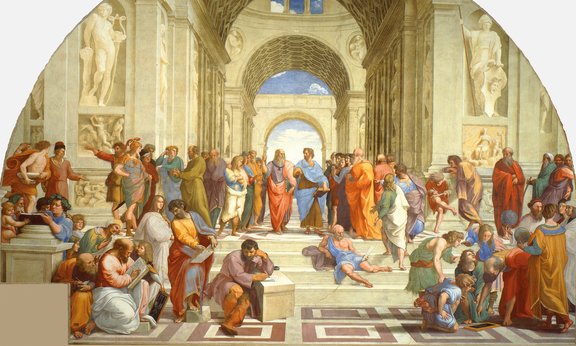Bachelor's Programme Philosophy
Would you like to study philosophical concepts, questions and theories?
The Bachelor’s Degree Programme in Philosophy introduces students to philosophy and its disciplines.
The students study philosophical questions in different contexts, learn methods in philosophy and investigate ethical, epistemological, socio-philosophical and metaphysical dimensions of society, culture and scholarship.
Please note: the language of instruction for this programme is German.
Study code
UC 033 541
Supplemental Examination
Latin
Supplemental examination in Latin is required before completion of the bachelor's degree programme if this subject was not completed satisfactorily with at least 10 credit hours at a higher-level secondary school.
FAQ
Graduates are able to elaborate, evaluate and implement scientific developments in all fields of philosophy and to apply the skills required in interdisciplinary contexts. They possess scientifically well-founded theoretical and methodical problem-solving skills and key competences such as willingness to receive criticism, ability to discuss and ethical reasoning.
The bachelor's programme introduces to the field of philosophy and its branches. Students are made familiar with philosophical concepts, questions and theories and have a general overview of the philosophical disciplines as well as in-depth knowledge of selected branches. They learn developments and connections in terms of the history of ideas and culture and reflect on philosophical questions of being human and on the ethical, epistemological, socio-philosophical and metaphysical foundations of our society, our culture and the sciences.
Apart from philosophical expertise, the Bachelor’s Programme in Philosophy also conveys a wide range of general skills applicable to different occupational fields. These include: recognizing problems and solving them methodically; independently accessing new and unusual fields of activity; analyzing, criticizing, comparing and revising different points of view; appropriately arranging and systematizing a variety of texts and materials; expressing oneself precisely in writing; clearly presenting ideas in presentations; convincingly arguing in discussions; understanding empty phrases and ideological delusions; using moderation and presentation techniques reasonably; deciding and acting in a socially and ethically competent manner.
Apart from activities in educational and research institutions, there are occupational opportunities in different areas such as in the cultural and social sector, media, politics and economy.
Graduates tracking: Shows which occupational fields students enter after graduation
Faculty of Philosophy and History Examination Office Information for students with disabilities
Curriculum
From the field
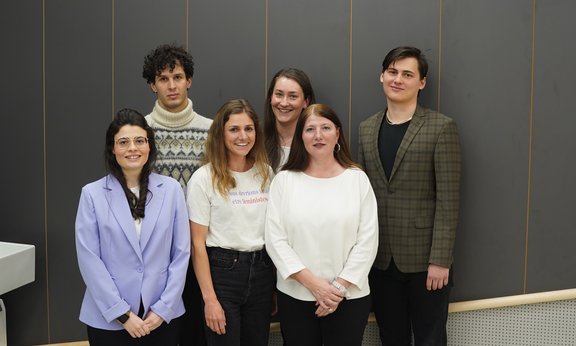
Auszeichnung studentischer Arbeiten in Philosophie
Am 9. März wurden am Institut für Philosophie als eine weitere der zahlreichen Buddy-/Mentoring-Aktivitäten erstmals vier Studierende für ihre Abschluss- oder Seminararbeiten mit einem Best Thesis/Paper Award 2023 prämiert.
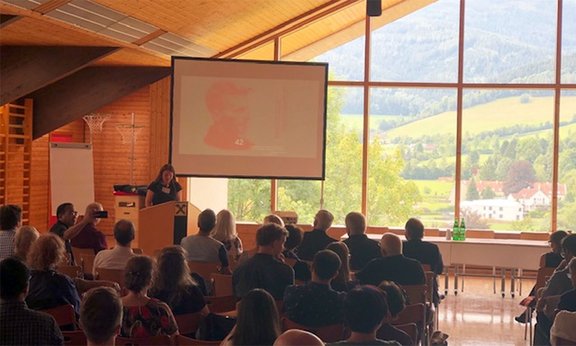
42. Internationales Wittgenstein-Symposium: Krise und Kritik
Anfang August fand das jährliche Wittgenstein-Symposium zum Thema Krise und Kritik: Philosophische Analyse und Zeitgeschehen in Kirchberg am Wechsel statt.
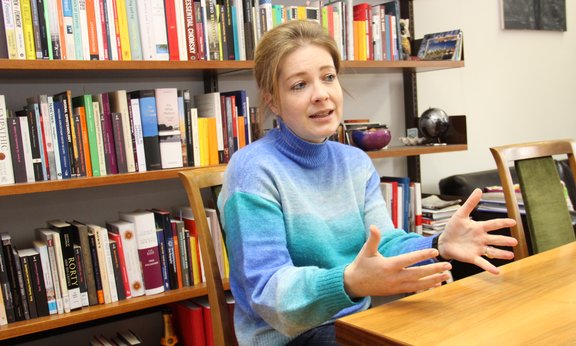
„DIE Menschenrechte gibt es nicht“
Marie-Luisa Frick ist Professorin für Philosophie. Neben der Philosophie hat die gebürtige Lienzerin auch Rechtswissenschaften studiert. Da liegt es nahe, dass die Rechtsphilosophie zu ihren Forschungsfeldern zählt. Im Interview zum Internationalen Tag der Menschenrechte spricht Frick über Menschenrechte, ihre gesellschaftliche Bedeutung und warum es sie zu wahren gilt.
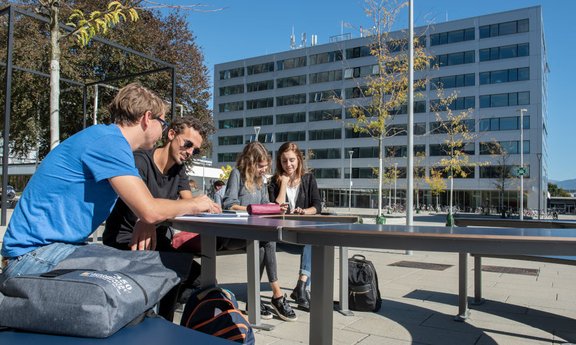
Zentrale Studienberatung
Wir sind die erste Anlaufstelle bei allen Fragen rund ums Studium für Schüler*innen, Studieninteressierte und Studierende sowie Eltern und Lehrer*innen.
Related studies

English and American Studies (Bachelor)
Bachelor of Arts

Educational Sciences (Bachelor)
Bachelor of Arts

History (Bachelor)
Bachelor of Arts

French (Bachelor)
Bachelor of Arts



